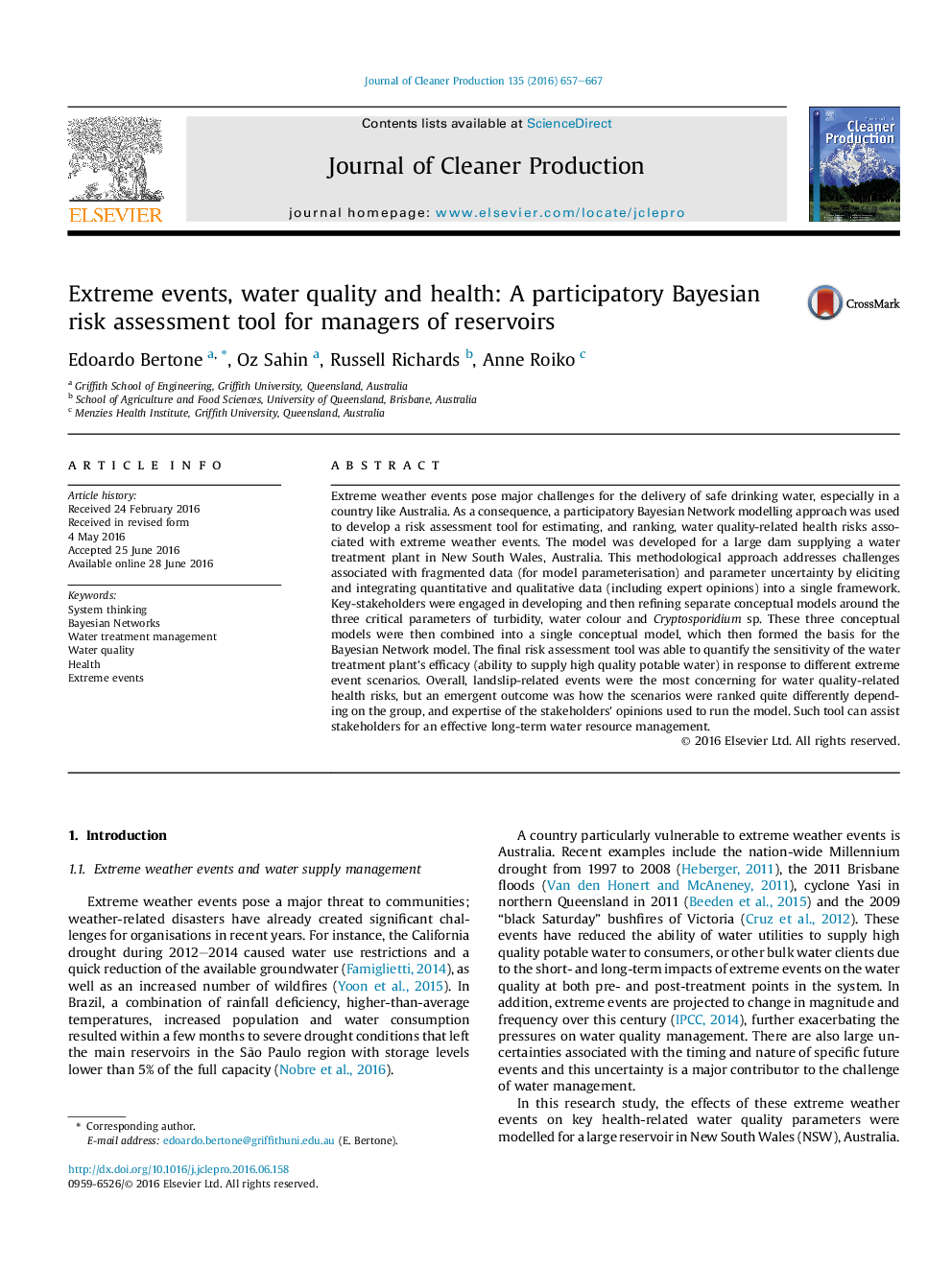| Article ID | Journal | Published Year | Pages | File Type |
|---|---|---|---|---|
| 8101244 | Journal of Cleaner Production | 2016 | 11 Pages |
Abstract
Extreme weather events pose major challenges for the delivery of safe drinking water, especially in a country like Australia. As a consequence, a participatory Bayesian Network modelling approach was used to develop a risk assessment tool for estimating, and ranking, water quality-related health risks associated with extreme weather events. The model was developed for a large dam supplying a water treatment plant in New South Wales, Australia. This methodological approach addresses challenges associated with fragmented data (for model parameterisation) and parameter uncertainty by eliciting and integrating quantitative and qualitative data (including expert opinions) into a single framework. Key-stakeholders were engaged in developing and then refining separate conceptual models around the three critical parameters of turbidity, water colour and Cryptosporidium sp. These three conceptual models were then combined into a single conceptual model, which then formed the basis for the Bayesian Network model. The final risk assessment tool was able to quantify the sensitivity of the water treatment plant's efficacy (ability to supply high quality potable water) in response to different extreme event scenarios. Overall, landslip-related events were the most concerning for water quality-related health risks, but an emergent outcome was how the scenarios were ranked quite differently depending on the group, and expertise of the stakeholders' opinions used to run the model. Such tool can assist stakeholders for an effective long-term water resource management.
Related Topics
Physical Sciences and Engineering
Energy
Renewable Energy, Sustainability and the Environment
Authors
Edoardo Bertone, Oz Sahin, Russell Richards, Anne Roiko,
